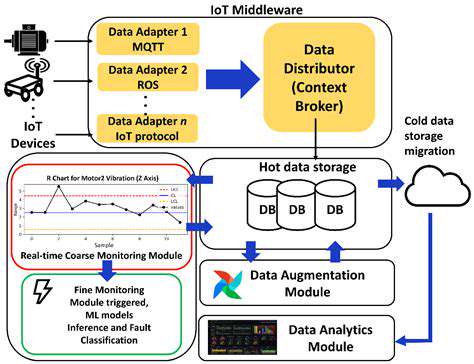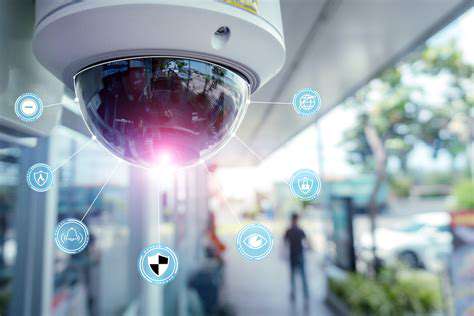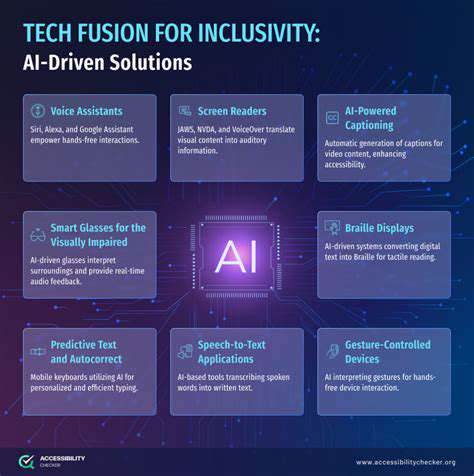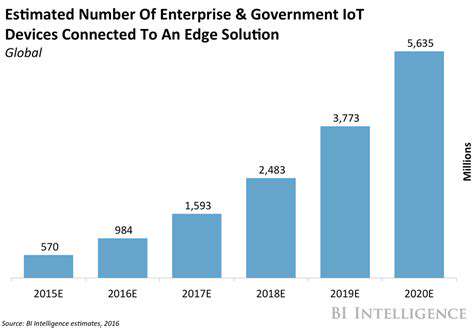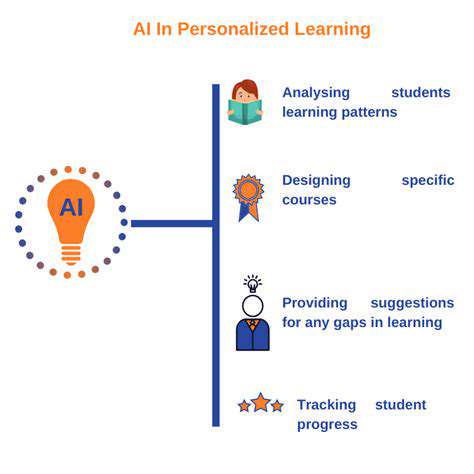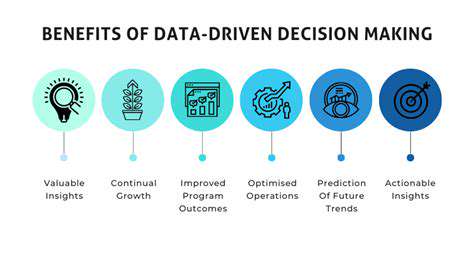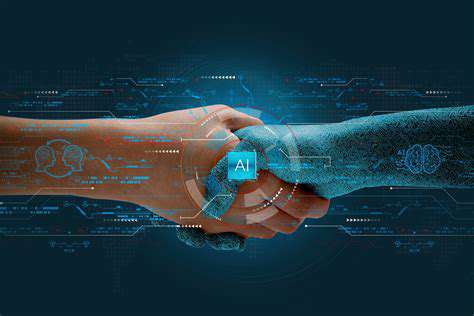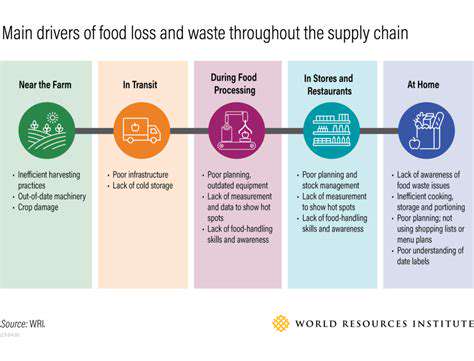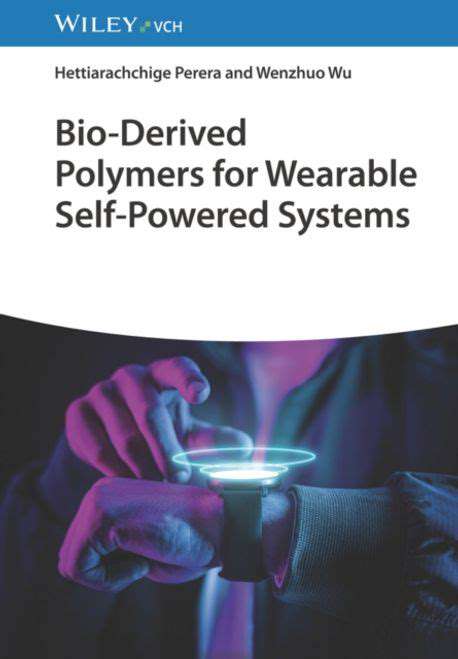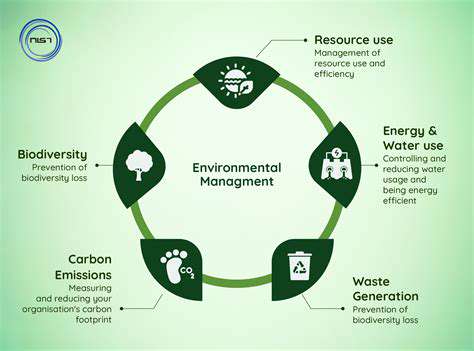Edge AI for Vehicle Component Monitoring
Real-time Anomaly Detection
Modern edge AI platforms have revolutionized how we monitor vehicle components in transportation systems. These intelligent systems process sensor data directly onboard vehicles, spotting irregularities that could signal potential failures. This immediate analysis enables operators to address issues before they escalate, preventing expensive repairs and dangerous situations. Transportation companies benefit from reduced vehicle downtime and more efficient maintenance operations.
The shift from scheduled maintenance to condition-based monitoring represents a fundamental change in fleet management. By assessing actual component wear rather than following rigid timelines, operators can extend part lifespans while minimizing unnecessary service interruptions. This approach also contributes to environmental sustainability by reducing the resource waste associated with premature part replacements.
Predictive Maintenance and Proactive Repair
Transportation operators now leverage sophisticated algorithms that forecast potential component failures with impressive accuracy. These systems examine both historical performance patterns and current operating conditions to generate actionable insights. This foresight allows maintenance teams to schedule repairs during planned downtime rather than dealing with unexpected breakdowns.
Beyond immediate repairs, this technology provides valuable data for long-term fleet planning. When components consistently show signs of deterioration, managers can make informed decisions about whether to repair or replace entire vehicles. This data-driven strategy leads to optimized capital expenditures and more reliable transportation services.
Improved Operational Efficiency and Reduced Costs
The automation of component monitoring through edge AI transforms transportation operations. By eliminating manual inspection requirements, companies can reallocate personnel to more complex tasks while ensuring continuous equipment monitoring. This operational shift results in faster response times and more strategic use of maintenance resources.
Financial benefits accumulate through multiple channels: fewer emergency repairs, extended equipment lifecycles, and maximized vehicle availability. The combination of these factors significantly impacts the bottom line for transportation providers. Additionally, real-time health monitoring facilitates better resource allocation decisions regarding maintenance priorities and route planning.
Optimizing Infrastructure Maintenance through Edge AI
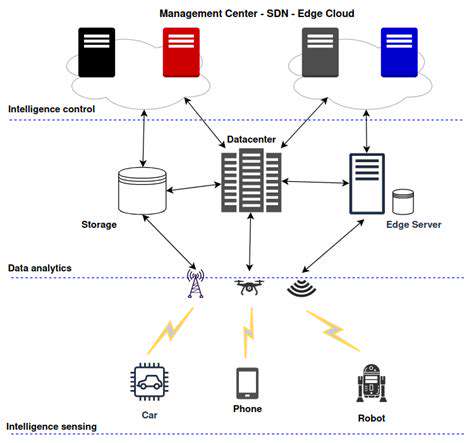
Planning and Prioritization
Strategic infrastructure maintenance begins with comprehensive documentation of all system components and their maintenance histories. Risk-based prioritization has become the gold standard, with critical assets receiving attention based on their operational importance and failure consequences. Regular professional inspections form the foundation of this preventive approach.
Preventive Maintenance Strategies
Traditional scheduled maintenance evolves into more sophisticated condition-based approaches with edge AI implementation. Sensor networks combined with predictive analytics create maintenance triggers based on actual equipment conditions rather than arbitrary timelines. This technological advancement dramatically reduces unplanned service interruptions while optimizing maintenance budgets.
Personnel Training and Skill Development
The effectiveness of any maintenance program depends heavily on technician expertise. Ongoing training programs must cover both traditional mechanical skills and emerging digital technologies. Well-trained personnel not only perform maintenance more effectively but also contribute to safer work environments and better decision-making.
Technology Integration
Modern maintenance operations increasingly rely on digital tools like CMMS platforms. These systems create valuable data trails that reveal patterns and opportunities for process optimization. The integration of IoT devices with these platforms enables real-time monitoring and more responsive maintenance strategies.
Sustainability and Environmental Considerations
Contemporary maintenance practices increasingly emphasize environmental responsibility. From material selection to waste reduction strategies, sustainable approaches benefit both operations and communities. Energy-efficient technologies and renewable resource utilization are becoming standard considerations in maintenance planning.
Real-World Applications and Future Trends
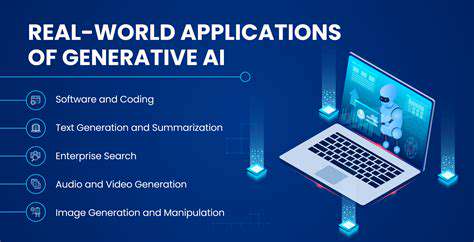
Real-World Applications of Advanced Technologies
Cutting-edge technologies are transforming operational landscapes across industries. From healthcare diagnostics to manufacturing quality control, these tools deliver measurable improvements in efficiency and outcomes. The ability to process and analyze complex datasets enables organizations to make better-informed decisions and optimize their processes.
Future Trends in Technological Advancements
Emerging fields like quantum computing promise to solve currently intractable problems. Breakthroughs in materials science and energy technologies may redefine entire industries within the coming decade. The convergence of different technological domains will likely produce innovations we can't yet anticipate.
Ethical Considerations and Societal Implications
As technology advances, society must address important questions about privacy, equity, and employment impacts. Balancing innovation with responsible implementation requires ongoing dialogue between technologists, policymakers, and the public. Establishing ethical frameworks will be crucial for sustainable technological progress.
The Role of Education and Training
Educational systems must evolve to prepare workers for the technology-driven economy. Continuous learning opportunities and specialized technical training will become increasingly valuable for career development. Both academic institutions and employers share responsibility for workforce preparation.
Global Collaboration and International Partnerships
Technological progress benefits from international cooperation and knowledge sharing. Cross-border partnerships accelerate innovation while helping establish universal standards and best practices. Such collaborations ensure that technological benefits reach global populations equitably.
